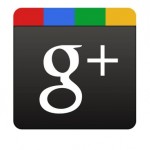A Technologist’s primary tool is their computer, along with the tools around them that help get their job done. For technology professionals there are certain tools that can help make the job easier. When starting a new job, moving into a new work area or setting up a home office, these are the essential things one should have when setting up a workstation. Depending on what one is doing, they may or may not need everything on this list or may need additional items not mentioned on this list. It may not be necessary for one to purchase If one is moving into an existing space, there may already be things in place, but these are the essentials for setting a work area for a technology professional.
Furniture:
Desk: Traditional desks are standard in corporate America; but standing desks have become trendy recently. Make sure it is big enough to accommodate everything one needs to start, and has room for future expansion for the inevitable paper pile-up.
Chair: Invest in a comfortable chair since you will be sitting in it all day, everyday and make sure it is adjustable for optimal comfort.
Bookshelf: Bookshelves are good for more than just books, and good in general for keeping a workspace organized.
Filing Cabinet: Organize files and make finding things later on much easier. Also be sure to have hanging folders and file folders to keep file inside them organized.
Hardware:
Computer: A good computer is worth it’s weight in gold, and as previously mentioned, is a technologists primary tool. Make sure when selecting a machine, it has the specs and the power to meet the needs of one’s job today, and is powerful enough to to continue to meet one’s needs for the next few years of use. When deciding between Windows and Mac OS, it is widely dependent on one’s work and company. Many companies standardize operating systems for all employees and may tell employees what they will get so they can run all the same software as their co-workers.
Smartphone: A smartphone is essential for technology professionals, who are frequently on the move and make it easy to get things done on the move.
Tablet: Tablets, much like smartphones let technologists get things done on the move. However, tablets are closer to a computer than a smartphone in its capabilities, but typically more portable. This makes them extremely valuable for meetings and other times when one doesn’t need a full-powered computer but needs more than a smartphones, or at least a bigger screen.
Headphones or Headset: Headphones are a good idea when working in an office environment and listening to audio, to prevent it from disturb any other co-workers. Headsets add a microphone which is very helpful for conference calls, Skype calls or any other conversations.
External Hard Drive: The internal hard drive in one’s computer is good for keeping things one may need every day or use frequently. However, for archiving old files or backing up one’s computer, which is a must, an external hard drive is the best way to go.
USB Hub: Almost everything plugs into USB anymore, from flash drives to smartphones to just about anything one could imagine. However, there may not be enough ports on one’s computer for all their devices. A USB Hub is an easy and inexpensive way to take one USB port and make it into several. Powered hubs are an additional benefit, despite the need of an additional cable, because it allows plugged devices to be charged as well.
Surge Strip(s): Even more important than USB ports, are outlets, which are often hard to come by in cubicles and office alike. Surge strips don’t only take one outlet and make them into several, but will also protect devices plugged in from electrical surges. Some surge protectors even have USB ports for charging electronic devices without a power adapter.
Keyboard and Mouse: Many laptop users may simply use the keyboard and trackpad built into their machine, but personally I prefer a standard wireless keyboard and mouse for my laptop and recommend considering getting a full-sized keyboard and/or mouse, for optimal productivity.
Label Maker: Label makers make keeping organized easy, whether its labeling files, cords on your computer or anything else to make one’s life easier.
Cable Ties/Velcro Ties: Cables can often become an unmanageable mess and can make one’s workspace look messy. Using plastic cable ties or velcro ties can make it easy, with a little bit of time spent, to keep all one’s cables organized.
Software:
Microsoft Office: Microsoft’s Office suite is the gold standard of getting things done with Word, Excel, and Powerpoint for getting things done. There are other alternatives to like Apple’s iWork, Office is really standard across all offices.
Calendar: There are calendars built-into all operating systems, desktop and mobile alike, and they are great for keeping one’s appointments straight. It is also very valuable to have one’s calendar on a cloud service such as Google Calendar or Exchange for web access and syncing across devices.
Evernote: As previously mentioned, Evernote has so many uses and makes life much easier. Even better than it’s usefulness, is that it is totally free!
About the Author
 Mike Gdovin has been blogging about technology since 2006 on his blog, Gdovin.net. He has a Bachelor of Science degree in Electronic Media from Kutztown University with a minor in Journalism, Public Relations and Business. In addition to blogging about technology, Mike is a video producer, technology consultant and social media expert.
Mike Gdovin has been blogging about technology since 2006 on his blog, Gdovin.net. He has a Bachelor of Science degree in Electronic Media from Kutztown University with a minor in Journalism, Public Relations and Business. In addition to blogging about technology, Mike is a video producer, technology consultant and social media expert.


